
Circuit Training 151: Book touring, Brydon-launching and lost Peter Kay stuff: Stuart Maconie gets the treatment
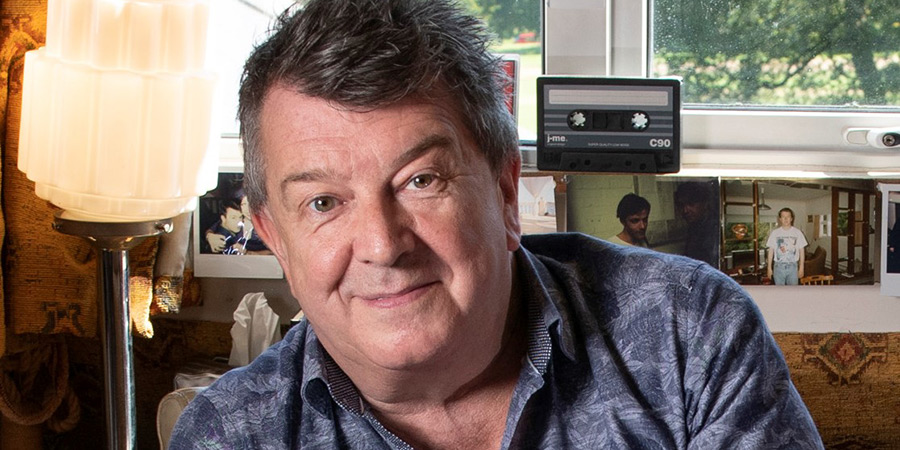
He's been in double acts, co-created big-name comedy series and has just toured the UK: so, is there a stand-up in Stuart Maconie, itching to get out?
The celebrated author, broadcaster, rambler and savoury-snack bon viveur seemed set for a comedy career back in the '90s. There were radio shows - the high-concept quasi-sitcom Fantastic Voyage and topical guest-fest The Treatment - and lots of TV, notably Phoenix Nights and Max & Paddy. But what happened to his I Love The 90s spoof with Peter Kay? We'll get to that.
Speaking of I Love The 90s, Maconie's first big partnership was with fellow music journo Andrew Collins, who moved on to Grass, Not Going Out - and the Collings and Herrin podcast. Where previous music hacks - Garry Bushell, Julie Burchill, Tony Parsons - became controversial columnists, this generation turned to comedy writing, the likes of David Quantick, Graham Linehan and Arthur Mathews.
But Maconie took a slightly different path. Or paths. On weekends he's all over 6 Music, but otherwise you'll find him rambling the country. That UK tour, of bookshops and theatres, is to promote a new book, The Full English, which was a tour in itself: a post-Brexit retread of the 1934 classic English Journey by J. B. Priestley, a writer introduced to Maconie by Barry Cryer (not personally, although Barry was - of course - pals with the great man).
These are interesting times to take the national temperature, and Maconie's hugely enjoyable journey noticeably changes course along the way, from the jocular to the jugular. We join him at lunchtime on Manchester's lively Deansgate...
Researching this interview, it was interesting how much comedy stuff you'd done, as I always think of you as part of that world. 'Comedy adjacent,' maybe?
That's a good way to put it. I've always hoped that my stuff has humour in it, like all the writers I've liked, from J. B. Priestley to Clive James. But I've shied away from saying 'This is me now being funny', because that's a different thing.
Although, having said that, for a little while in the '90s... the first radio I ever properly did was a comedy series for Radio Five called Fantastic Voyage, with Andrew Collins. So that's knocking around somewhere in the archive. And I did do some comedy writing for people, I have been in writers' rooms - and what odd places they are.
So I have done comedy things, but I've always shied away from saying 'here's me now being funny'. It might be fear, but it might be that I'd rather be incidentally funny while doing something else.
Music journalists often went into comedy back then, and you did too, initially.
I was part of that generation at the NME who embraced it, with 'comedy is the new rock'n'roll' and all that. I remember going to see the editor as he'd noticed that I was putting funny spoof things in the front pages, the Thrills section, which up until then had been brief profiles of Taiwanese film directors and Nick Cave novels. He said, 'I'm not telling you off, I love it. Make the whole section like that'.
I was trying to make it a bit more Private Eye-ish, satirical stuff about pop. And it kind of grew out of that. So I think we were part of that generation, me, Andrew, David Quantick, who were into comedy and pop, and didn't see any problem with fusing the two.
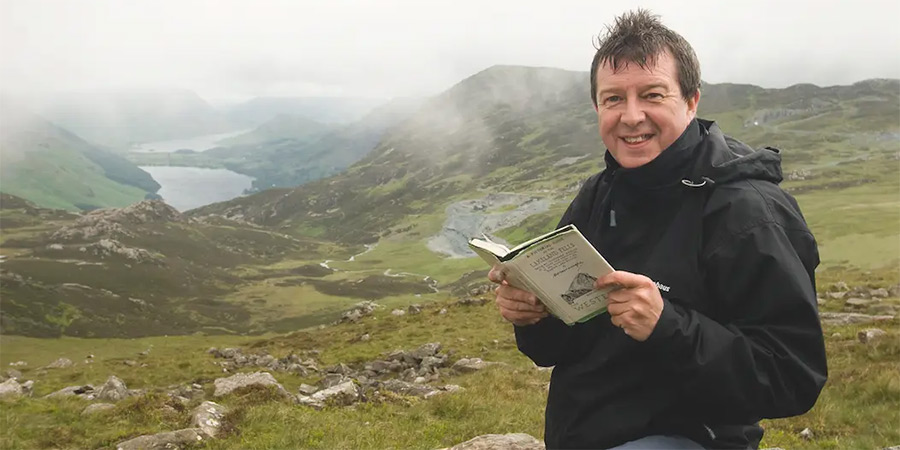
You then did The Treatment, on Radio 5, a topical comedy show?
The Treatment was a really interesting mix of stuff, and it launched careers: Rob Brydon, a lot of big stand-up comics. We had stand-ups on every week, but we also sat side by side with serious political journalists, we managed to mix the two I think quite well.
Rob Brydon and Laura Shavin were the sketch actors; it certainly was the first media that Rob ever did. He was essentially struggling - he won't mind me saying this, I don't think - making a lot of money at the time doing things like Toilet Duck voiceovers, but desperate for something more fulfilling, and while he was doing The Treatment he got Marion And Geoff commissioned.
We had Linda Smith, Mark Steel, Mark Thomas. I think people have occasionally made efforts to copy it, and it's never really quite worked, to mix a bit of satire with serious politics. But I'm very proud of that show. I really loved it.
Can you still hear it anywhere?
They've got to be somewhere. It was live in front of an audience, so you got that feel that anything could happen, things could go wrong. I really hope there are some records somewhere, because it was just at the right time as well, mid-'90s, the beginnings of Cool Britannia, Blur, the end of the Tories, a real feeling that things were happening.
Just hearing those news stories again would be fascinating.
That'd be interesting wouldn't it, to hear our take on whatever the news items were. I think we were on air for, like, Princess Diana's death. I'd love to hear what we did about that...
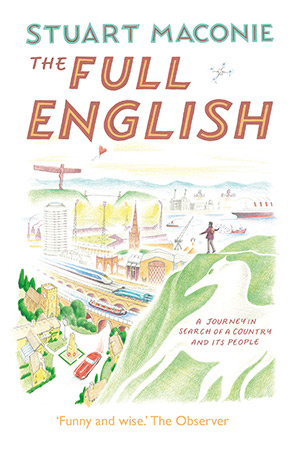
There's lots of humour in your books, but generally laughing at yourself, or punching up, whereas I find some travel writers slag places that are already struggling.
I think you have to have a streak of cruelty in you to be a good 'comic' comic, which I don't think I've got. [Scottish author] John Niven once said a great thing to me: 'you have to write as if both your parents are dead', or everybody you know is dead. And I know what he means. When I make my jokes, I hope they're always at the expense of the people above, not below. I don't mind having a go at people who deserve it.
It seems very timely. I suppose it's a travel book about people as much as the places.
Yeah, the origin is Priestley's original 1934 travelogue English Journey, and people periodically said to me, 'you should do English Journey, it's right up your street.' I didn't know what English Journey was then, but after Brexit, after the pandemic, there is absolutely a reason to do it, because it seems England is in the same kind of confused, fractious, downtrodden mess it was in the '30s.
Without stretching it too much, we've got an economic crisis, quasi-fascist strongmen in Europe waging war, toxic debates in the press. And we've had these terrible ruptures of Brexit and the pandemic. But as you said, I do hope, like Priestley, the book will give you a laugh along the way.
It seems to start off quite humorously then gradually get more serious - or was that just me?
No, I think you've got a very good point. I wanted to begin very engagingly, and to let people know straight away 'look, this isn't a dreary sociological tract'. But I think, in the last chapter, there's a flash of steel in there. Because I do want to make my point that I cannot sometimes believe what England is doing to itself, the kind of people we elect, and that kind of thing.
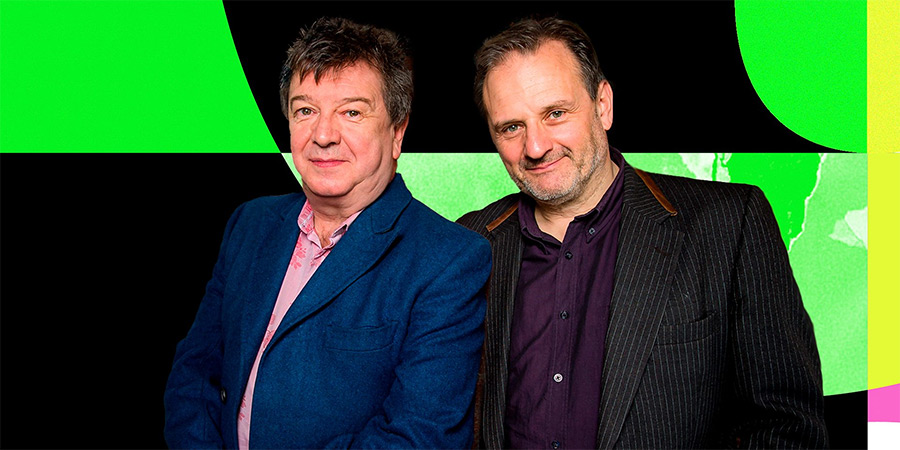
I started reading it just after the Lineker suspension. You're on BBC radio every week, although you manage to keep it fairly neutral on air?
I am always very aware, I do take it seriously, because I like my bosses at the BBC, the people I work with, and I don't want to give them a hard time. So I always try and maintain a kind of clear blue water between the 'me' of the books and the radio show. I can't presume that everybody who wants to listen to me on the radio shares my politics.
With books, it's a different matter, and the BBC and my bosses get that. They've said to me, 'look, we totally understand that you have a separate life as a social historian, and as a cultural commentator, just use your common sense.' And that's what I do.
You and [radio co-host] Mark Radcliffe have quite a classic double-act chemistry.
The funny thing is about me and Mark, we're quite different people. We're interested in quite different things. Our politics are a bit different. And I think you can tell that, but hopefully we kind of channel that sort of edge; I'm cod-exasperated with him or the listeners about things. Having said that, there's probably some genuine exasperation in there too.
We always say, we want to be serious about the music, and respectful, but we don't want to be po-faced. So we don't mind if it strays into comedy.
How did you end up in Phoenix Nights?
I'll tell you exactly what happened: I was a fan of Phoenix Nights, obviously, and me and Peter were both mainstays of those I Love The 90s shows, so for a BBC Christmas programme, I suggested: let's do I Love The 1890s. We went to elaborate lengths to dress up in stovepipe hats and muttonchop whiskers, talked about, 'oh I remember that Isambard Kingdom Brunel' - that kind of thing.
We went to a lot of trouble to do it, but it was never shown. Someone's got a copy of it somewhere. The gang of us spent a day together in Oxford Road in Manchester doing it, and Peter and I got talking and became friendly. And he just said to me, do you want to be in Phoenix Nights? So yeah, I'm the Crimewatch presenter.
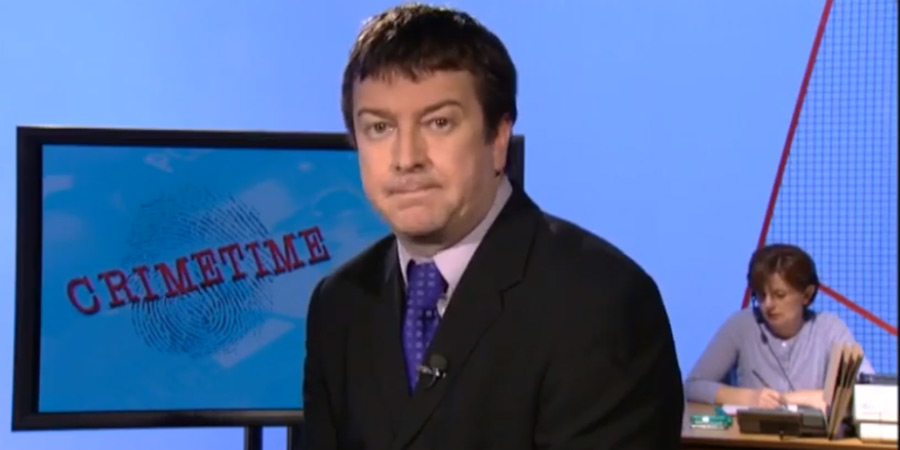
A recurring part...
I'm in Max & Paddy as well, I reprised my role. That was great fun. And I realised the enormous popularity of Peter Kay, today as well. I was only on it for a few minutes, and so many people were talking [to me] about it.
It's funny how a slightly ephemeral part of your career can become the one lots of people know you for.
I quite like the fact I've done loads of different things. Sometimes it works against me, as people don't know what to call me, and I do get some critics, a slight overtone of 'what is he, why is he writing books if he's just a DJ or whatever?'
Spreading yourself a bit thin can work against you. One of my idols, Clive James, some people in the literary establishment - even though he's incredibly learned and a brilliant man - would say 'well, aren't you that man who does silly stuff on telly on a Saturday night?' He saw no problem doing all those things, and neither do I.
He's the biggest single influence on my writing. His TV criticism, I didn't read it at the time because we didn't get the posh papers in my house. But later reading them in paperback, when I started to write for the NME, I thought 'I want to write about pop like Clive James wrote about telly.'
I found him a bad influence: every line was so perfect, it took me ages to write anything. How do you find the actual process of writing?
It's fine, I'm very much with Priestley on this: I am in the best sense of the word a hack. Which is not to say that I don't care about what I do, or it's shoddy, I'm very much aware that it's a craft.
People who aren't professional writers seem to think you lie around on a chaise longue waiting for inspiration to strike. And that's not how it works. You get up, make a cup of tea, sit at your desk and work, like any other job. You can learn, get better at it, and discipline yourself. I think Priestley was like that, you get up in the morning, get to your desk and start work.
That's the joy of radio by comparison, I suppose - spontaneous rambling.
That's the nature of our show. Some shows are very scripted, but ours aren't. Clearly. For better or worse. We just open the microphones and start talking.
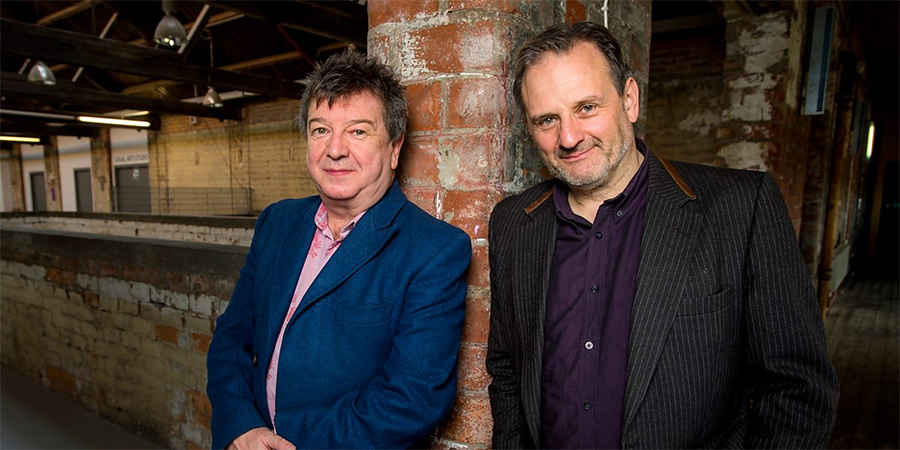
Radcliffe and Maconie is the soundtrack to weekend mornings for me, at work, or wandering about - do you ever think about all those varied things you're accompanying?
I do, but you mustn't think too much because you start to worry about things you say. But I love the idea that we're a part of people's weekend, whether they're in the kitchen cooking, out for a walk, or whatever. I'm very much aware of being part of that. Radio has something that telly can never have, because you can take it to so many places and enjoy it.
It was really important to people during the pandemic.
I had a lady last night at my book event, who got quite emotional and said 'I live on my own and you were a lifeline during lockdown.' I was really touched by that.
Stand-ups often say they 'need' to do it. Do these book appearances scratch an itch to perform for you?
There's a bit of that. It's promo mainly, but with a previous book I based a theatre show around it. That was based on the Jarrow March, it had PowerPoint, pictures from my walk; a big show, and maybe this one will evolve into that too. For some of these [events] people are interviewing me, but last night I said, 'no, I'll just get up and talk,' so I stood and talked for about half an hour without any notes. And I realised that I did like that.
But I'm just enjoying being out and meeting people again, after a long time not being able to do it. I'm really enjoying being able to do that.
The Full English is out now, published by HarperNorth.
Help us publish more great content by becoming a BCG Supporter. You'll be backing our mission to champion, celebrate and promote British comedy in all its forms: past, present and future.
We understand times are tough, but if you believe in the power of laughter we'd be honoured to have you join us. Advertising doesn't cover our costs, so every single donation matters and is put to good use. Thank you.
Love comedy? Find out more